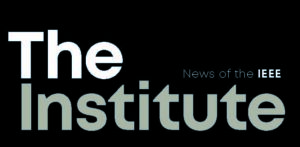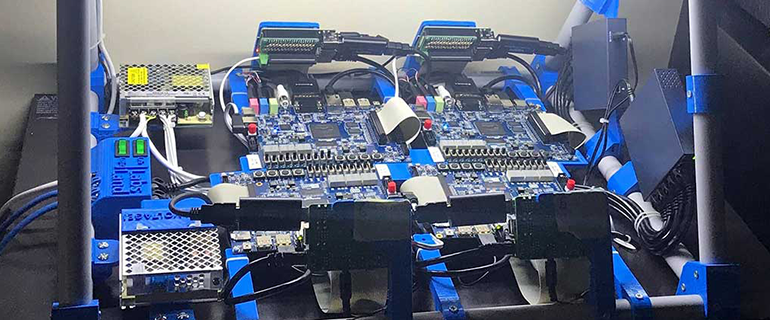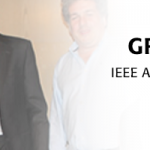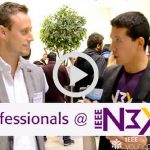Remote Learning Made Easier With This Startup’s Online Engineering Labs
THE INSTITUTE Hands-on online laboratories have grown in popularity now that schools around the world are conducting classes remotely or restricting the number of students on campus because of the COVID-19 pandemic. The remote options allow students access to a physical laboratory to conduct experiments. They are real labs, not simulations; students use actual hardware and software.
Some universities have their own remote labs, while others are using ones offered by LabsLand, a startup with offices in Bilbao, Spain, and St. Louis. The company provides preuniversity schools and colleges with access to a network of 30 university labs that cover six topics: biology, chemistry, electronics, physics, robotics, and technology.
Students can learn how to program an Arduino Uno board, for example, or experiment with principles of analogic electronics.
LabsLand and its partner universities use cameras, sensors, and other equipment to enable students to monitor and interact with the laboratory setups. The students use web-based interfaces designed by LabsLand.
The company also can build labs for schools and provide technical support for those that operate their own remote lab.
The startup’s labs can be integrated with learning platforms such as Blackboard, Canvas, Classroom, and Moodle.
 LabsLand provides analytics programs so instructors can monitor their students’ progress.
LabsLand provides analytics programs so instructors can monitor their students’ progress.
Schools pay a subscription fee for the use of the lab network, but LabsLand provided free access to its labs from March to September. Since October it has been offering discounts on its subscriptions in certain circumstances.
The startup’s founders are IEEE Senior Members Pablo Orduña and Luis Rodriguez-Gil.
“Our labs have been used more than 150,000 times this year by 120 universities,” Orduña says. “Students are remotely able to upload their code and run it. They’re able to move switches and touch keypads and see the effect in real-time of what’s happening in the hardware.”
PROOF OF CONCEPT
Virtual labs might seem like a new concept, but Orduña and Rodriguez-Gil have been working in the field for more than a decade.
The two founders met in Bilbao at the University of Deusto.
“We were in the same research group,” Rodriguez-Gil says. “Pablo started in the lab in 2004. I started in 2009. Pablo started his Ph.D. in 2007 and finished in 2013. I started my Ph.D. in 2014 and finished in 2017. Pablo was one of the two Ph.D. advisors.”
They worked on remote hands-on labs as part of the university’s WebLab-Deusto research group, led by their Ph.D. advisor, IEEE Senior Member Javier García-Zubía, a former chair of the IEEE Education Society’s Spanish section chapter.
Orduña and Rodriguez-Gil continued in the field after they graduated. LabsLand, which launched in 2015, is a spin-off of WebLab.
“We saw that as our university’s [remote lab] was growing, there were some [pieces] missing, and [it also] needed technical and organizational support,” Orduña says. Along with other colleagues who invested time and money, Orduña and Rodriguez-Gil decided to create LabsLand to provide more services.
LabsLand recently received funding from Arch Grants, Impact EdTech, and BBK Venture Philanthropy.
INSTRUCTOR FEEDBACK
Dominik May, an assistant professor and education researcher in the Engineering Education Transformations Institute at the University of Georgia, in Athens, says that even before the pandemic, several electrical and computer engineering classes had started using remote labs in addition to traditional in-person labs. Now, he says, LabsLand provides several of the college’s labs, which are used for teaching electronics and circuits design as well as chemical engineering courses.
“Our aim is to not only integrate remote labs into courses as some kind of additional service but also we see that online labs have the potential to be transformative for engineering education as a whole,” May says. “They are a perfect way to customize learning experiences and to prepare students for an environment in which remote working is becoming more important.”
More universities have subscribed to LabsLand since learning went remote to slow the spread of the coronavirus.
Engineering professors who were teaching digital design using field-programmable gate array boards at the University of Washington in Seattle and New Mexico State University, in Las Cruces, started looking for ways to make the boards available to students.
Go to IEEE The Institute to read the complete article.






